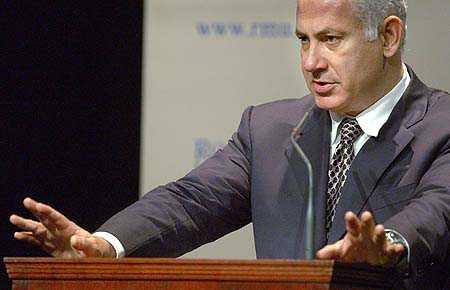 “very pointed” .. [and] .. “clearly calculated in terms of its potential impact on disrupting the American-Turkish relationship.”
“very pointed” .. [and] .. “clearly calculated in terms of its potential impact on disrupting the American-Turkish relationship.”
ANALYSIS AIR DATE: Nov. 29, 2010
How Will New WikiLeaks Revelations Affect Diplomatic Candor?
Gentlemen, it’s good to have you both with us.
So, Secretary Clinton said today she is confident that this will not have long-lasting — do permanent damage to U.S. relations with other countries.
Stephen Hadley, do you agree with her? Is she right about that?
STEPHEN HADLEY, former adviser, U.S. National Security: In one sense, yes. I think, in the short run, it’s going to have some very deleterious effects.One is, you know, confidential communications between our government and other governments are important in terms of making policy. And if we cannot keep the secret and the confidences of other governments, they will be reluctant to share their innermost thoughts with us.
It also is corrupting because our people in diplomatic posts overseas want to be able to give their candid assessments about people with whom they’re dealing in their countries up to U.S. leadership. It’s important to inform the president, secretary of state. They will now be reluctant to be as candid in the reporting cables, for fear that it will become public and harm their relationship with a country.
So, it’s very corrupting of the process of confidence on which our diplomacy depends, both internally and with other governments.
JUDY WOODRUFF: Dr. Brzezinski, what do you think the fallout is going to be?
ZBIGNIEW BRZEZINSKI, former adviser, U.S. National Security: Well, you know, the best assessment I can give is to cite a phrase which used to be used very often in Vienna when it was the capital of the Austro-Hungarian Empire.
And when some crisis would take place, it would be said, it’s catastrophic, but not serious. And this is the way I look at. I think Steve has put his finger on it by saying that some things will pass. Of course, some things will endure.
But I think the most serious issues are not those which are getting the headlines right now. Who cares if Berlusconi is described as a clown. Most Italians agree with that. Who cares if Putin is described as an alpha dog? He probably is flattered by it.
The real issue is, who is feeding Wikipedia on this issue — Wiki — Wiki — WikiLeaks on this issue? They’re getting a lot of information which seems trivial, inconsequential, but some of it seems surprisingly pointed.
JUDY WOODRUFF: Well, what are you referring to?
ZBIGNIEW BRZEZINSKI: Well, for example, there are references to a report by our officials that some Chinese leaders favor a reunified Korea under South Korea.
This is clearly designed to embarrass the Chinese and our relationship with them. The very pointed references to Arab leaders could have as their objective undermining their political credibility at home, because this kind of public identification of their hostility towards Iran could actually play against them at home.
JUDY WOODRUFF: And I want to ask you about that, because the impression is — and I want to turn to Steve Hadley on this as well — Saudi Arabia has not been public about its view, as — and we heard the quote from King Abdullah, that the U.S. should go after or Israel should go after Iran and its nuclear weapons program.
So, what — what effect could this have now that that’s out there that it’s confirmed?
STEPHEN HADLEY: Well, actually, I don’t think that’s new.
And a lot of people have been saying, without going into details and without going into these sort of sensational quotes, that the Arab states are very concerned about Iran, very concerned about the impact of a nuclear Iran.People have been saying that’s one of the odd things about how Israel and the Arab states actually have common cause about their concern about Iran.
So, I think the fact that there is concern is not new. But, unfortunately, the way it is expressed, with these, you know, very headline-grabbing phrases, that’s what’s unfortunate and that’s what’s embarrassing. And that’s what may make people a little bit less candid in their communications in the future.
JUDY WOODRUFF: And what is it — what are you worried about with regard to the knowledge that…
 ZBIGNIEW BRZEZINSKI: It’s not a question of worry. It’s, rather, a question of whether WikiLeaks are being manipulated by interested parties that want to either complicate our relationship with other governments or want to undermine some governments, because some of these items that are being emphasized and have surfaced are very pointed.
ZBIGNIEW BRZEZINSKI: It’s not a question of worry. It’s, rather, a question of whether WikiLeaks are being manipulated by interested parties that want to either complicate our relationship with other governments or want to undermine some governments, because some of these items that are being emphasized and have surfaced are very pointed.
And I wonder whether, in fact, there aren’t some operations internationally, intelligence services, that are feeding stuff to WikiLeaks, because it is a unique opportunity to embarrass us, to embarrass our position, but also to undermine our relations with particular governments.
For example, leaving aside the personal gossip about Sarkozy or Berlusconi or Putin, the business about the Turks is clearly calculated in terms of its potential impact on disrupting the American-Turkish relationship.
JUDY WOODRUFF: Just criticizing the people around…
ZBIGNIEW BRZEZINSKI: And the top leaders, Erdogan and Davutoglu and so forth, are using some really, really, very sharp language.
JUDY WOODRUFF: But this is 250 — it’s a quarter-of-a-million documents.
ZBIGNIEW BRZEZINSKI: Precisely.
JUDY WOODRUFF: How easy would it be to seed this to make sure that it was slanted a certain way?
ZBIGNIEW BRZEZINSKI: Seeding — seeding it is very easy.
I have no doubt that WikiLeaks is getting a lot of the stuff from sort of relatively unimportant sources, like the one that perhaps is identified on the air. But it may be getting stuff at the same time from interested intelligence parties who want to manipulate the process and achieve certain very specific objectives.
JUDY WOODRUFF: Do you have that concern?
STEPHEN HADLEY: Obviously, it would always be a concern.
The — what we know or what has been said publicly is it looks like a data dump through a pretty junior-level person. So, in terms of that material, it looks like a data dump. Generally, in Washington, I have had the rule that, if there are two explanations, one is conspiracy and one is incompetence, you ought to go with incompetence. You will be right 90 percent of the time.
(LAUGHTER)
But you can’t rule out what Dr. Brzezinski talked about. And if not in the past, in terms of how we got here, it would be interesting — and now, having heard this, I suspect there will be some intelligence services thinking about maybe we could seed in these data dumps something that would be useful. You can’t rule it out.
But it has the appearance at this point of a core dump. For some reason, people get a thrill out of leaking classified documents. It’s never — you know, it’s — whether it’s a sense of self-importance.
But I think it’s more likely, in terms of the volume, that that’s what’s at work. But you can’t rule out, particularly going forward, the kind of thing Dr. Brzezinski is talking about.
ZBIGNIEW BRZEZINSKI: But, Steve, the other foreign intelligence services don’t have to wait for me to make that suggestion.
(LAUGHTER)
I think they can think of it themselves, particularly after the first instance.
JUDY WOODRUFF: What effect do you think this will have, though, on the willingness of foreign — whether it’s leaders, diplomats — to talk candidly with Americans about their views? Is this going to affect that?
ZBIGNIEW BRZEZINSKI: Well, I haven’t seen anything in it that really affects serious issues that would be constrained in direct talks.
It’s the more sensational impacting items that can have a political significance that I find that more significant. Beyond that, of course, there is a second problem which I think is serious in this otherwise, in my view, non-catastrophic situation. Namely, it’s an absolute scandal that this now is happening again.
You know, the head of the Bureau of the Budget has issued an instruction to all the heads of departments to the effect that they must safeguard classified information, and any failure is unacceptable. It will not be tolerated.
Well, this is the second instance. I would like to know what the administration has done since the first to make the second one less likely.
JUDY WOODRUFF: But a lot of these documents have been in the hands — haven’t they been in the hands of WikiLeaks for some time…
ZBIGNIEW BRZEZINSKI: We don’t know that for a fact.
JUDY WOODRUFF: … because of — because of this private who is in jail and accused, Army private?
STEPHEN HADLEY: We don’t know it. And what Dr. Brzezinski is talking about, I think, also shows one of the dilemmas in all of this, is one of the things you like to do is to get information that would be useful to people in the field out to the field. And that means fairly widespread distribution.
After things like this, there is an effort, usually a reaction, understandable, to narrow down the distribution. And that could have the effect of denying information to people who could use it in their jobs day to day.
So, just exactly — this is the challenge. How do you try to limit the risk of this kind of activity in going — in a way going forward, while still making this information available to those who can use it, particularly in the field in their day-to-day activities?
JUDY WOODRUFF: And what about asking diplomats, in essence, to spy? I mean, we have learned now that Secretary Clinton and, before her, Secretary Rice were asking diplomats to collect confidential information, credit cards and so forth, on foreign diplomats.
You’re smiling.
ZBIGNIEW BRZEZINSKI: Well, yes, because, look, diplomats are supposed to be reporting. They’re not supposed to shut their eyes and close their ears.
JUDY WOODRUFF: But doesn’t that blur the line?
ZBIGNIEW BRZEZINSKI: Well, not really. I mean, they’re not asked to do anything that is really a violation of the laws.
But if they can obtain some information regarding key individuals, I see nothing wrong with it, provided it doesn’t become a major task or a significant assignment.
JUDY WOODRUFF: And — but, on balance, you’re not worried that this changes the level of candor in diplomatic communities?
ZBIGNIEW BRZEZINSKI: Do you think foreigners are not doing that?
(LAUGHTER)
STEPHEN HADLEY: No, I’m worried about the heads of state having their communications compromised and how willing they are going to be talk candidly going forward.
Quite frankly, there’s a difference between getting information from diplomats.Of course, that’s what you want — that’s what you have diplomats out there for, is to get you all kinds of information. And you want to know the background of the people you’re dealing with.
That’s different than stealing secrets. That’s what your intelligence services do.I don’t think there’s a line here that’s been crossed.
JUDY WOODRUFF: Stephen Hadley, Zbigniew Brzezinski, thank you both.
ZBIGNIEW BRZEZINSKI: Thank you.
STEPHEN HADLEY: Thank you.
, Nov. 29, 2010
 Israel has proposed paying compensation to relatives of Turkish activists it killed in exchange for Ankara to give up lawsuits against the Israeli navy.
Israel has proposed paying compensation to relatives of Turkish activists it killed in exchange for Ankara to give up lawsuits against the Israeli navy.

 “very pointed” .. [and] .. “clearly calculated in terms of its potential impact on disrupting the American-Turkish relationship.”
“very pointed” .. [and] .. “clearly calculated in terms of its potential impact on disrupting the American-Turkish relationship.”


